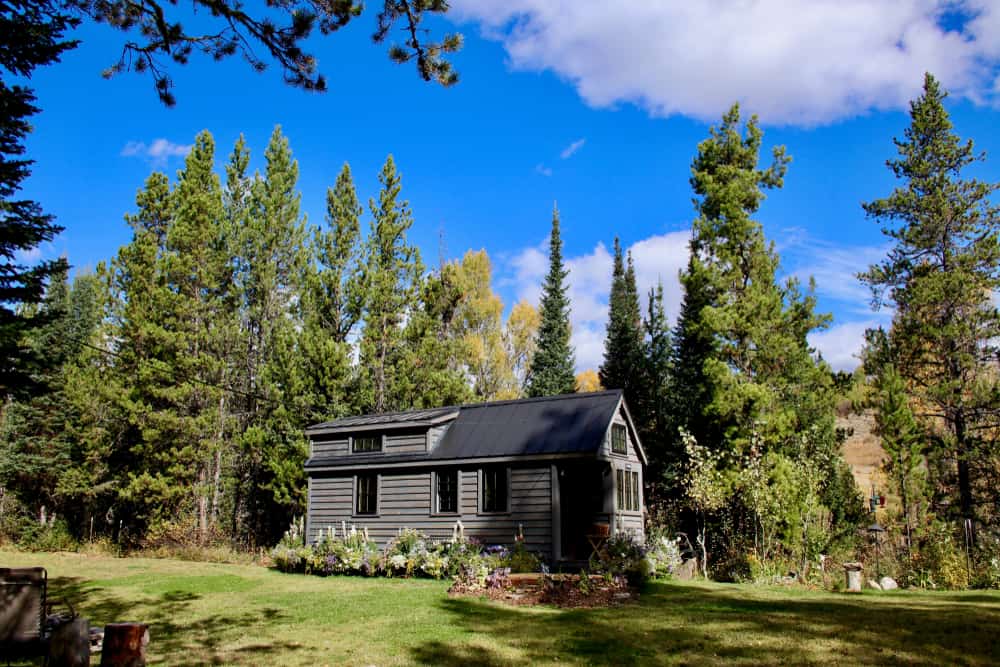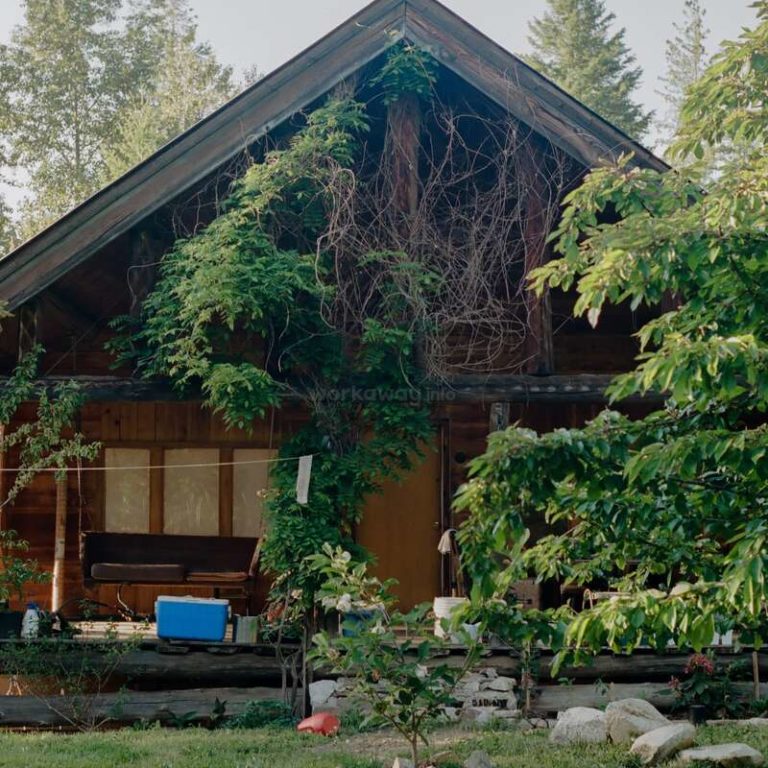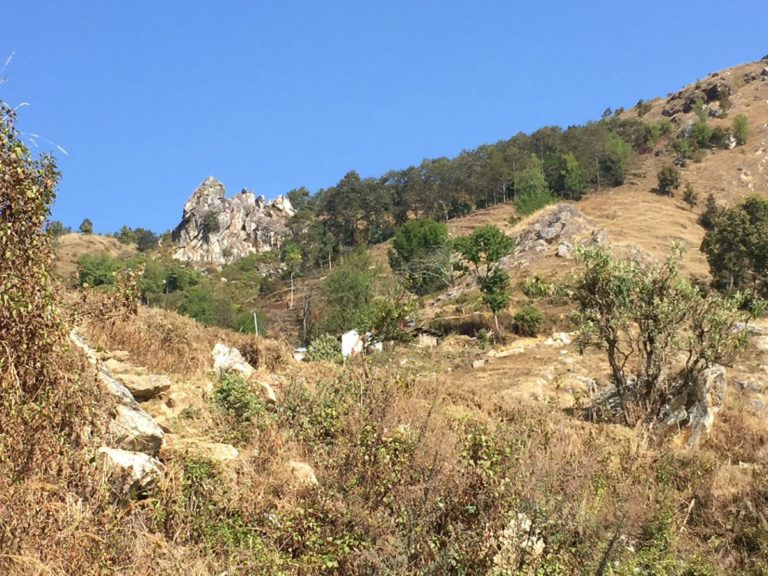As more individuals embark on off-grid living, they experience profound changes in their lives – from the way they generate energy to their food choices and daily routines.
These transformations not only have positive effects on one’s lifestyle but also significantly influence personal growth.
This article will delve into the specific aspects of an off-grid mindset that contribute to self-growth, providing practical insights for those seeking to cultivate change in their own lives and embrace a more sustainable future.
By embracing this lifestyle shift with intention and dedication one can gain increased resilience, resourcefulness and an even greater sense of fulfillment as they transition into off-grid living.
Embrace simplicity
Off-grid living involves simplifying your life and reducing your reliance on technology and modern conveniences. This can lead to a more mindful and intentional approach to living, which can have a positive impact on self-growth.
By doing so, individuals can cultivate a more mindful and intentional approach to living, which can have a profoundly positive impact on self-growth.
Off-grid living encourages a shift in perspective, allowing individuals to focus on what truly matters in their lives.
They become more aware of their daily actions, thoughts, and emotions, and they learn to prioritize what brings them joy and fulfillment.
By living more intentionally, individuals can break free from the monotony of modern life and discover new ways of living that are more authentic and meaningful.
Moreover, off-grid living provides an opportunity to develop skills and knowledge that promote self-sufficiency and resilience.
Individuals can learn to grow their own food, harness renewable energy, and repair their own belongings.
These skills not only provide a sense of accomplishment but also foster a sense of responsibility and accountability for one’s actions.
By living off the grid, individuals can develop a deeper appreciation for the natural world and their place within it.
They can learn to live in harmony with nature, rather than against it, which can lead to a more fulfilling and purposeful life.
Off-grid living is a transformative way of life that encourages individuals to simplify their lives, reduce their reliance on technology, and embrace a more mindful and intentional approach to living.
By doing so, individuals can experience profound personal growth, develop new skills, and cultivate a deeper appreciation for the natural world.
Off-grid living is a path to a more authentic and fulfilling life, and it is an option that more people should consider.
Be self-sufficient
Growing your own food, generating your own energy, and collecting your own water can promote a sense of self-sufficiency and independence. This can be empowering and can help you develop the skills and confidence you need to take on new challenges.
Growing your own food, generating your own energy, and collecting your own water can be a powerful tool for fostering self-sufficiency and independence.
By producing your own resources, you can break free from reliance on external systems and develop a sense of autonomy and control over your life.
This can be especially empowering in times of economic or environmental uncertainty, when traditional sources of support may be unreliable or unavailable.
In addition to providing a practical means of survival, these activities can also help you develop valuable skills and confidence.
Learning to grow your own food, for example, can teach you about soil health, crop rotation, and pest management, while generating your own energy can provide insight into the mechanics of solar panels, wind turbines, and other renewable energy systems.
Collecting your own water can also instill an appreciation for the importance of conservation and the delicate balance of local ecosystems.
Furthermore, the act of producing your own resources can also have a profound psychological impact.
It can give you a sense of purpose and fulfillment, as well as a connection to the land and the community around you.
By taking charge of your own sustenance, you can develop a stronger sense of self-worth and self-reliance, and be better equipped to face the challenges of the future.
Overall, growing your own food, generating your own energy, and collecting your own water can be an empowering and life-changing experience that can help you build resilience, develop valuable skills, and create a more sustainable and fulfilling life.
Connect with nature
Living off-grid often involves living in a more natural and harmonious way with the environment. This can lead to a greater appreciation for the beauty and complexity of nature, and can help you cultivate a deeper connection to the natural world.
Living off-grid offers the opportunity to live in harmony with nature, fostering a deeper appreciation for the beauty and complexity of the environment.
By relying on renewable energy sources and sustainable living practices, you can immerse yourself in a more natural way of life.
The simplicity of off-grid living encourages a greater connection to the earth and its rhythms, allowing you to experience the cycles of nature firsthand.
From the changing seasons to the patterns of the wildlife, you can develop a profound understanding of the interconnectedness of all living things.
By living off-grid, you can embrace a more mindful and deliberate approach to life, aligning your actions with the natural world and fostering a deeper sense of well-being.
Live sustainably
Off-grid living often involves finding ways to live more sustainably and reduce waste. This can involve using renewable energy sources, reducing your carbon footprint, and finding creative ways to repurpose materials.
Off-grid living offers an opportunity to live more sustainably and reduce waste by embracing renewable energy sources, reducing your carbon footprint, and finding creative ways to repurpose materials.
For instance, instead of relying on fossil fuels, you can harness the power of solar, wind, or hydro energy to light and heat your home.
This not only reduces your carbon footprint but also lowers your energy bills.
You can adopt eco-friendly practices like composting, recycling, and repurposing materials to minimize waste.
For example, you can use rainwater collection systems to irrigate your garden, and install gray water systems to reuse water from sinks and showers.
By adopting these sustainable practices, off-grid living can help you reduce your carbon footprint, lower your energy bills, and create a more self-sufficient lifestyle.
Be open-minded
Off-grid living can be challenging and unconventional, which requires a certain level of open-mindedness and adaptability. This can help you cultivate a more open and accepting mindset, which can be beneficial for personal growth.
Living off the grid can be a challenging and unconventional lifestyle choice, but it also presents an opportunity for personal growth.
The necessity of adapting to a self-sufficient and sustainable lifestyle requires a high level of open-mindedness and adaptability.
This means embracing new ideas, experimenting with unfamiliar techniques, and overcoming unexpected obstacles.
By doing so, you can cultivate a more open and accepting mindset, which is essential for personal growth and development.
Moreover, the challenges of off-grid living force you to think creatively and resourcefully, which can lead to innovative solutions and new discoveries.
You may learn to use alternative energy sources, grow your own food, and craft your own furniture, among other skills.
As you adapt to this lifestyle, you may find that you become more resilient, self-sufficient, and fulfilled.
Ultimately, the challenges of off-grid living can help you develop a more open and accepting mindset, which can be transformative for your personal growth.
By embracing this lifestyle, you can gain a deeper understanding of yourself and the world around you, and live a more authentic and meaningful life.
Take responsibility
Off-grid living often involves taking responsibility for your own survival and well-being. This can help you develop a sense of accountability and self-reliance, which can be empowering and can help you grow as a person.
Off-grid living is all about self-sufficiency, and taking responsibility for your own survival and well-being is a important aspect of this lifestyle.
When you’re living off the grid, you’re not relying on external systems or infrastructure to meet your basic needs.
Instead, you’re responsible for providing for yourself and your loved ones.
This can be challenging at times, but it’s also incredibly empowering.
By taking charge of your own survival, you’re developing a sense of accountability and self-reliance that can help you grow as a person.
For example, when you’re off the grid, you’re responsible for growing your own food, collecting your own water, and generating your own energy.
This requires you to be proactive and resourceful, and it forces you to think creatively and problem-solve.
As a result, you’re developing skills and habits that are essential for a sustainable and fulfilling life.
Taking responsibility for your own survival can help you develop a greater appreciation for the natural world and the resources it provides.
By living off the grid, you’re constantly reminded of the interconnectedness of all things, and you’re more likely to adopt practices that are sustainable and respectful of the environment.
In short, taking responsibility for your own survival and well-being is a critical aspect of off-grid living.
It empowers you to take control of your own life, develop essential skills, and appreciate the beauty and resources of the natural world.
Practice mindfulness
Living off-grid often involves being more mindful and intentional in your daily activities. This can help you cultivate a greater awareness of the present moment, and can help you live more fully and authentically.
Living off-grid requires a more mindful and intentional approach to daily activities, which can lead to a greater awareness of the present moment and a more authentic way of living.
By adopting this lifestyle, individuals can cultivate a greater connection to nature and the rhythms of the earth, which can promote a sense of inner peace and harmony.
One way to live more intentionally off-grid is to prioritize self-sufficiency and sustainability.
This can involve growing your own food, generating your own energy through renewable sources, and reducing waste by reusing and repurposing materials.
By taking charge of your own resources and needs, you can feel more empowered and in control of your life.
Another benefit of living off-grid is the opportunity to develop a greater awareness of the present moment.
Without the distractions of modern technology and the hustle and bustle of urban life, you can learn to slow down and appreciate the simple joys of life.
This can lead to a more mindful and meditative way of living, where you can savor the beauty of nature and connect with your own inner wisdom.
In addition, living off-grid can help you live more authentically and true to yourself.
By disconnecting from the external pressures of modern society, you can tap into your own inner desires and values, and live a life that is more aligned with your true nature.
This can lead to a greater sense of fulfillment and happiness, as you are able to live life on your own terms and pursue your passions without compromise.
Overall, living off-grid offers a unique opportunity to cultivate a greater awareness of the present moment and live more authentically.
By embracing this lifestyle, you can promote sustainability, self-sufficiency, and a deeper connection with nature, all while living a more fulfilling and meaningful life.]]>
Living off-grid offers a transformative opportunity to cultivate mindfulness and authenticity in your daily life.
By disconnecting from the hustle and bustle of urban living, you can slow down and appreciate the simple joys of life.
This mindful approach to living can help you develop a greater awareness of the present moment and live more intentionally, aligned with your own inner wisdom.
As you embrace this lifestyle, you can promote sustainability, self-sufficiency, and a deeper connection with nature.
One of the primary benefits of living off-grid is the opportunity to cultivate a greater awareness of the present moment.
When you disconnect from the constant distractions of modern society, you can focus more intently on the world around you and the present moment.
This mindfulness can help you slow down and appreciate the beauty of nature, as well as the simple joys of life.
As you cultivate this awareness, you can learn to live more intentionally, aligned with your own inner wisdom.
Furthermore, living off-grid allows you to live a more fulfilling and meaningful life by embracing self-sufficiency and sustainability.
By producing your own food, generating your own energy, and managing your own waste, you can gain a greater appreciation for the interconnectedness of all things and the importance of living in harmony with nature.
This lifestyle can also foster a sense of accomplishment and satisfaction that comes from being self-reliant and independent.
As you embrace this lifestyle, you can experience a deeper sense of purpose and fulfillment, all while living in alignment with your values and principles.
Living off-grid is a powerful opportunity to cultivate mindfulness, authenticity, and sustainability.
By embracing this lifestyle, you can live a more fulfilling and meaningful life, aligned with your values and principles.
Living off-grid is a transformative lifestyle that offers a unique opportunity to cultivate mindfulness, authenticity, and sustainability.
By embracing this lifestyle, you can experience a deeper sense of purpose and fulfillment, all while living in alignment with your values and principles.
One of the key benefits of living off-grid is the increased mindfulness and intentionality it requires.
When you’re living off the grid, you need to be more aware of your daily activities and how they impact the environment and your own well-being.
This can help you cultivate a greater awareness of the present moment, and can lead to a more meaningful and purposeful life.
For example, when you’re living off-grid, you may need to carefully plan your daily activities around the availability of natural resources, such as sunlight and wind.
This can help you become more intentional and mindful about your daily routine, and can lead to a more balanced and fulfilling life.
Living off-grid allows you to live a more self-sufficient lifestyle, which can be incredibly empowering.
When you’re able to provide for yourself and your family without relying on outside resources, you can experience a sense of independence and autonomy that is hard to find in today’s society.
Overall, living off-grid is a powerful way to live a more intentional, self-sufficient, and fulfilling life.
By embracing this lifestyle, you can cultivate a deeper connection with nature, yourself, and your community.
Find community
Despite the isolation that can come with off-grid living, many off-grid communities are vibrant and supportive. Finding a community of like-minded individuals can provide a sense of belonging and support, which is important for personal growth.
Many people assume that living off the grid means living in isolation, but the truth is that off-grid communities are often vibrant and supportive.
Finding a community of like-minded individuals who share your values and lifestyle choices can provide a sense of belonging and support that is essential for personal growth.
When you live off the grid, you are more likely to rely on yourself and your neighbors for support, rather than relying on city services or a centralized grid.
This can create a strong sense of camaraderie and cooperation, as you work together to overcome the challenges of off-grid living.
Off-grid communities are often at the forefront of sustainable living and renewable energy innovation, providing a dynamic and collaborative environment for personal and technological growth.
Overall, finding a supportive community of like-minded individuals can make off-grid living a fulfilling and empowering experience.
Want More? Dive Deeper Here!
Hey there! If you’re the type who loves going down the rabbit hole of information (like we do), you’re in the right spot. We’ve pulled together some cool reads and resources that dive a bit deeper into the stuff we chat about on our site. Whether you’re just killing time or super into the topic, these picks might just be what you’re looking for. Happy reading!






